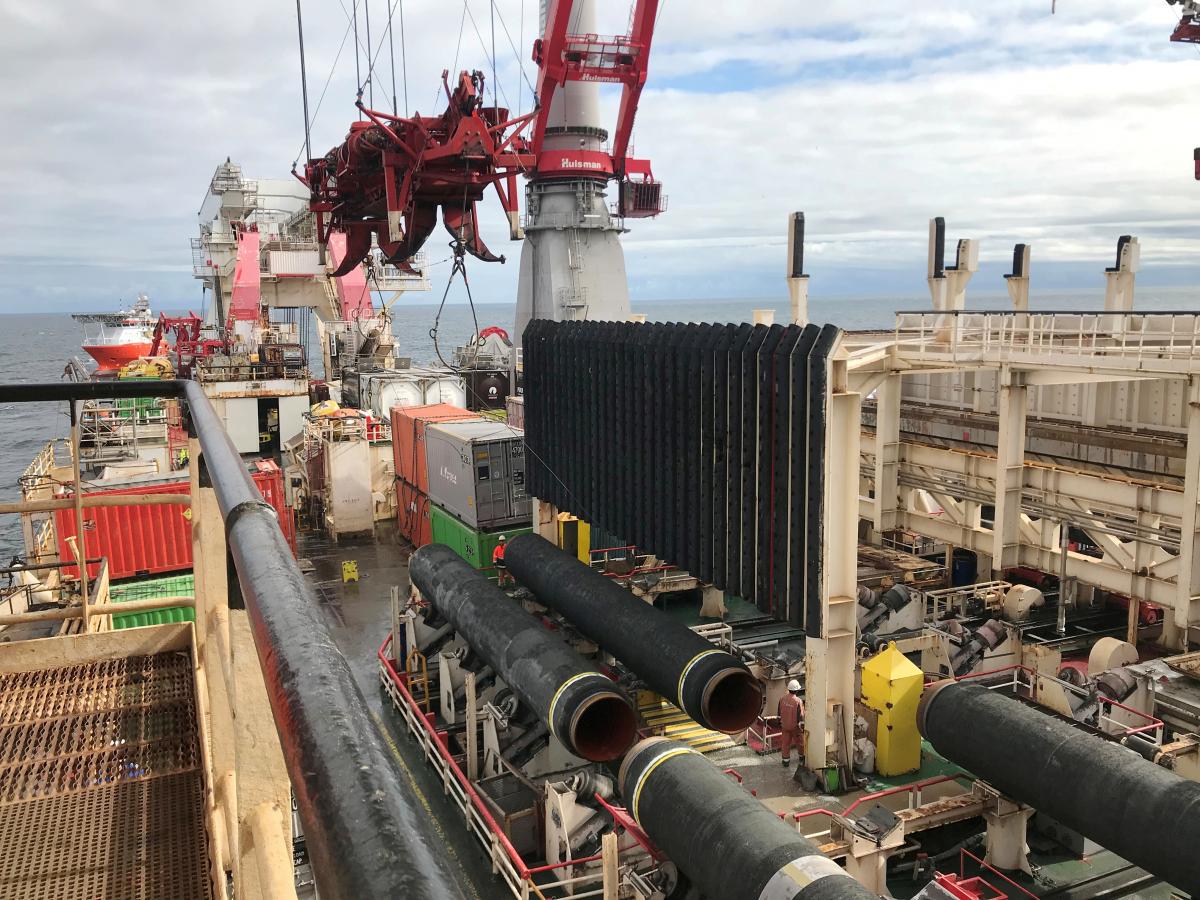
The U.S. Department of State says it expands sanctions against the Nord Stream 2 gas pipeline project.
That is according to a statement published on the U.S. Department of State's website.
"In accordance with [the Protecting Europe's Energy Security Act of 2019] PEESA Section 7503, the Secretary of State, in consultation with the Secretary of the Treasury, is to submit a report to Congress for the relevant period, identifying (A) vessels that engaged in pipe-laying at depths of 100 feet or more below sea level for the construction of the Nord Stream 2 pipeline project, the TurkStream pipeline project, or any project that is a successor to either such project; and (B) foreign persons that the Secretary of State, in consultation with the Secretary of the Treasury, determines have knowingly sold, leased or provided those vessels for the construction of such a project; or facilitated deceptive or structured transactions to provide those vessels for the construction of such a project," reads the statement.
Read alsoZelensky thanks Poland for decisive stance on Nord Stream 2"Such activities subject to sanctions pursuant to PEESA or other authorities may include, but are not limited to, providing services or facilities for upgrades or installation of equipment for those vessels, or funding for upgrades or installation of equipment for those vessels. The Department of State and the Department of the Treasury are prepared to use the full range of sanctions authorities to halt construction of these pipelines," it said.
Repair of Nord Stream 2
Sanctions will not apply to persons engaging in activities necessary for or related to the repair or maintenance of, or environmental remediation with respect to, Nord Stream 2, TurkStream, or any project that is a successor to either such project.
Also, the United States will not impose sanctions on persons that the Secretary of State, in consultation with the Secretary of the Treasury, determines, on or after October 20,2020 meet the above criteria for having knowingly "provided those vessels for the construction of such a project" under Section 7503(a)(1)(B) of PEESA, if those persons immediately engage in, and complete within 30 days, a good-faith wind down of such activities upon the issuance of this clarification.
Nord Stream 2: Background
- The Nord Stream 2 project envisages the construction and operation of two gas pipeline branches with a total throughput capacity of 55 billion cubic meters of natural gas per year from the coast of Russia through the Baltic Sea to Germany. It should connect Russia's Ust-Lug and Germany's Greifswald. This new pipeline bypassing Ukraine is to be built next to the existing Nord Stream 1 pipeline.
- The construction of the pipeline was expected to be completed before the end of 2019.
- The pipeline will be 1,220 km long. The project is being implemented by Russia's Gazprom in alliance with European companies – ENGIE, OMV, Royal Dutch Shell, Uniper, and Wintershall. Ukraine stands against the construction of Nord Stream 2 as it will most likely lose its status of a gas transit country, while its potential revenue losses are estimated at US$3 billion annually. The project is also highly criticized by the U.S., Poland, and the Baltic States.
- On July 15, U.S. Secretary of State Mike Pompeo warned that the participants in the Nord Stream 2 project would fall under the Countering America's Adversaries Through Sanctions Act, CAATSA.
- On July 16, the U.S. recommended that investment companies reconsider their participation in the Nord Stream 2 gas pipeline project.
- On July 23, the U.S. Senate approved the draft National Defense Authorization Act for Fiscal Year 2021, which, among other things, contains additional sanctions against the companies involved in the construction of Nord Stream 2.
- Ukraine's Foreign Ministry welcomed the United States' readiness to impose sanctions on investment companies involved in the completion of the project.

